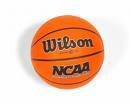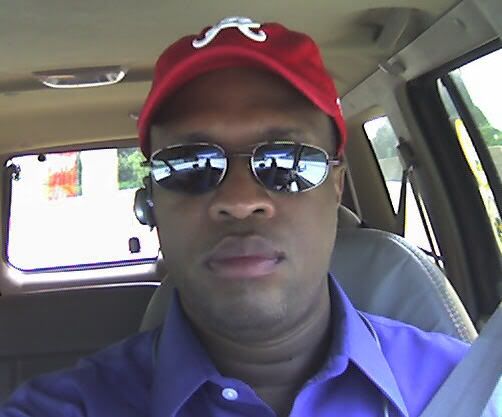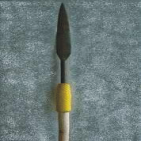 Two separate news stories touch on Historically Black Colleges and Universities (HBCUs) and the "stigma" attached with being relegated to the play-in games associated with the NCAA Basketball Championship (March Madness).
Two separate news stories touch on Historically Black Colleges and Universities (HBCUs) and the "stigma" attached with being relegated to the play-in games associated with the NCAA Basketball Championship (March Madness).The following is the March 11th Washington Post article titled "Battling Against 'Stigma' of Play-In":
Hampton made two NCAA tournament appearances during Jeff Granger's college basketball career, both losses, but the experiences were very different.
The first was in 2002, when, as a redshirt, Granger watched the No. 15 seed Pirates lose to No. 2 seed Connecticut in the first round at a sold-out Verizon Center. The other was last year, before fewer than 8,000 fans in Dayton, when Hampton was assigned to play Monmouth in the "opening round" for the right to get into the bracket of 64.
"I know what being in the tournament is," Granger said. The opening-round game "was kind of, sort of, that experience. But it wasn't."
The NCAA tournament's opening-round game, which was added in 2001 and is commonly known as the play-in game, still faces the perception that it is not truly a part of the tournament. It is an issue of particular interest for historically black colleges and universities (HBCUs), whose teams have been relegated to the Tuesday night game most often. If the NCAA selection committee keeps with its current pattern when the field of 65 is announced today, it would mark the sixth straight season that the champion of the Southwest Athletic Conference or the Mid-Eastern Athletic Conference, the two leagues that comprise Division I's historically black colleges, will be sent to the play-in game.
"[It's] a backdoor way into the tournament," Hampton President William R. Harvey said.
The play-in game was created as a compromise to preserve the number of at-large bids in the NCAA tournament after the creation of the Mountain West Conference increased the number of automatic bids from 33 to 34. Held in Dayton, Ohio, it pits two of the least competitive teams in the field for the right to be a No. 16 seed and face a No. 1 seed in the traditional field of 64. It is the only game in the tournament that is not a part of the television deal between CBS and the NCAA.
"Dayton has hosted that game in fine fashion and the NCAA has done everything possible to treat the game as a tournament game," said Western Athletic Conference Commissioner Karl Benson, a former member of the NCAA selection committee. "But there is a stigma attached to the two conferences that are playing in that game."
Since its creation, three representatives from the SWAC and two from the MEAC have been sent to the game. The Big South, with two appearances, is the only other league in the country that has sent a team more than once.
The trend is alarming to some affiliated with the two conferences, especially coaches such as Florida A&M's Mike Gillespie, who said that the majority of their teams face unique challenges that make it difficult to compare their competitive résumés to those of other schools.
"I feel the MEAC is every bit as good as the Southland, the Northeast," said Gillespie, who led Florida A&M to the tournament in 2004. "Our top five teams are every bit as good. Why do we have to be singled out each and every year?"
First-year Hampton coach Kevin Nickelberry called the opening round a "pseudo conference tournament game," one that a conference champion shouldn't have to play.
"I dare anybody to say that the experience of a kid in a HBCU is any less important than anybody else's," Nickelberry said. "They got up at 5 o'clock in the morning, they lifted weights, they did everything else that they do at Auburn, Maryland and Ohio State. Their experience is being compromised, and you're basically saying it doesn't matter."
The situation also creates a quandary for members of the NCAA tournament selection committee, which five years ago created a subcommittee asked specifically to handle seeding for the tournament's bottom rung in hopes of combating what Benson called the "stereotyping" of seeds.
But since the game has been created, the SWAC and MEAC have ranked at or near the bottom of the country in the Ratings Percentage Index formula, one of the tools used by the committee to slot teams. The conferences also have had some strange postseason luck. Last season's MEAC tournament provides the perfect example: Delaware State won the regular season title but Hampton earned the NCAA berth through winning the conference tournament.
"When it's like that, what are you going to do?" said Jack Kvancz, George Washington's athletic director, who is a former member of the selection committee.
Jerry Palm, a national expert on the RPI formula used by the committee, said the simplest way to avoid the play-in game is to earn a higher rating by winning more games. "Those teams are down there [in rankings] because they can't beat anybody," said Palm, who operates the Web site http://www.collegerpi.com. "I think that those teams are genuinely not-so-good."
But Gillespie and Nickelberry said the problem is much more complex.
HBCUs typically schedule what are known as "guaranteed money" games against elite programs, which are capable of delivering the largest payouts. At Florida A&M, Gillespie said, a typical slate of between seven or nine guaranteed money games generates nearly $275,000 annually, money the school's athletic program depends on for survival. For smaller schools, these games are played on the road and are often guaranteed losses, which have devastating effects on a team's RPI.
"To get beat by 30 points doesn't create confidence for a team and doesn't raise your RPI," said Nickelberry, whose Pirates are one of the few black college teams that don't have to play money games.
While accepting money for a mismatch deal is common among the nation's smaller conferences, HBCUs play the most -- which Gillespie said distorts team records. This season, the MEAC's 11 teams averaged four games against schools from the six major conferences this season, the most in the country, and went 0-45 in those games. The SWAC averaged just over three games against the majors, finishing 1-33.
Palm said some smaller schools and conferences that have managed to increase their RPIs have done so by playing lower ranked mid-majors that are more likely to enter home-and-home scheduling agreements. Though the payouts aren't as large, the competition gap isn't as large. But, Nickelberry said, most schools in the historically black conferences can't afford to do away with money games.
"If you play that many guaranteed games, it's not possible, based on the equation, to copy what other people have done," Nickelberry said. "You can't do it."
While MEAC Commissioner Dennis Thomas maintains the play-in game will remain part of the tournament, he knows first-hand what a better seed can mean for a program. He was the athletic director at Hampton when the 15th-seeded Pirates beat No. 2 seed Iowa State, 58-57, in 2001 in one of one of the greatest upsets in the history of the NCAA tournament. Another MEAC school was behind another stunning upset in 1997, when No. 15 seeded Coppin State beat No. 2 South Carolina, 78-65.
"It's kind of ironic when two upsets in recent years have been from the HBCUs," Nickelberry said.
The thought of joining those ranks is one of the reasons that Nickelberry said he left his spot as an assistant on Oliver Purnell's staff at Clemson to take the job at Hampton, which with an endowment of more than $220 million can avoid the pitfalls of other HBCUs.
"But what about the teams that can't do it?" Nickelberry said.
The following is an excerpt from today's Atlanta Journal-Constitution article titled 'Selection boss deflects slap at play-in game':
Niagara, which won Metro Atlantic Athletic Conference (MAAC) Tournament, said it felt "disrespected" because it was put into the first-round game with Florida A&M (an HBCU which won the MEAC Conference Championship) Tuesday night in Dayton, Ohio.
Niagara (22-11), which started the season 1-6 because it had suspended several players, felt it should not be in the Tuesday night game because there were other teams in the tournament with lower rankings than its 134 in the RPI.
"I think it was shocking," coach Joe Mihalich told the Associated Press. "I think everybody was shocked and maybe some people were insulted by it. But that's good. That's fine with us."
Walters dismissed the suggestion that asking teams to play in Tuesday's game cheapens their NCAA experience.
"There are 260 teams that would love to be playing in the opening round game tomorrow night," Walters said in a conference call with reporters Monday afternoon.
The tournament field expanded from 64 to 65 teams in 2001 because the number of conferences that received automatic bids grew to 31. The larger conferences wanted maintain the 34 at-large bids that had previously existed so the play-in, or opening round, game between two of the lower seeds was created. It is not always reserved for the two lowest seeds in the tournament.
Walters conceded that there has been sensitivity not to put two representatives of the Historically Black Colleges and Universities (MEAC, SWAC) into the opening round game. With Florida A&M, in Tuesday's game this marks the sixth straight season that a team from one of those two conferences has been in the Tuesday game.
"There were about 40 teams with 20 wins that didn't even get in the tournament," Walters said. "Nobody was out to punish anybody. I don't understand why there is concern about Niagara playing in the opening round game. It's an honor to play."
 plez sez: I have a strong bias about this issue because my alma mater is a member of the ACC (GO JACKETS!) which has 6 teams in the NCAA Championship Tournament.
plez sez: I have a strong bias about this issue because my alma mater is a member of the ACC (GO JACKETS!) which has 6 teams in the NCAA Championship Tournament.I am glad that the field of teams was expanded to accommodate more conference champions, because without it, probably only one HBCU would have the opportunity to participate, instead of the two that we have now (Florida A&M and Jackson State). Admittedly, these schools are much smaller than most Division I schools, have much smaller athletic budgets, and attract basketball players who by-and-large are not recruited to the much larger programs.
Over the past week, I took the opportunity to watch some of the games in the MEAC and SWAC Tournaments. The level of competition was several rungs below that of a mid-major; I saw very few starters who could even walk-on at an ACC, SEC, or Big 12 university. To be honest, it is refreshing to read that the selection committee is sensitive to limiting the play-in game to only one HCBU, because in reality, both of them should probably be playing tonight!
I am going to keep it real, though, I'll be rooting for Florida A&M tonight (GO RATTLERS!), if I can find the game on TV!













No comments:
Post a Comment